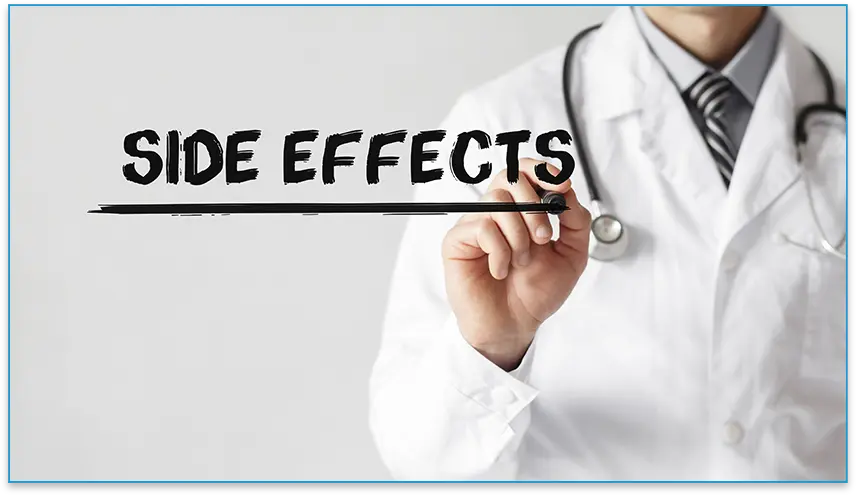Human growth hormone (HGH) and testosterone are two pivotal hormones that play critical roles in the body. Both hormones have widespread effects on health, development, and daily functioning. HGH, a peptide hormone, stimulates growth, cell reproduction, and regeneration, making it crucial during childhood and adolescence. Testosterone, a steroid hormone, is essential for developing male reproductive tissues and promoting secondary sexual characteristics, but it’s also important for muscle mass, bone density, and overall health in both men and women.
While both hormones are associated with growth and development, their functions and health implications vary considerably. Testosterone is often highlighted for its role in sexual function and physical strength, while HGH is critical for growth and sustaining body composition, metabolism, and muscle and bone health. Recognizing the differences and interactions between HGH vs testosterone is important for understanding their therapeutic applications, from treating hormone deficiencies to optimizing physical performance and managing aging-related conditions.
Quick Summary
- HGH vs Testosterone are essential hormones with distinct roles in growth, development, and health.
- Their balanced levels are crucial for physical and metabolic health, influencing muscle mass, bone density, and body composition.
- Understanding hormonal interactions and implications assists in medical applications, lifestyle choices, and managing aging-related health issues.
HGH vs Testosterone

In exploring HGH vs Testosterone, it’s essential to grasp their unique roles and interactions within the body, as well as the implications of their manipulation through therapies.
Hormonal Functions in the Human Body
Human Growth Hormone (HGH), produced by the pituitary gland, is crucial for development and metabolism. It impacts muscle and bone growth, fat distribution, and the regulation of various bodily functions. Testosterone is a sex hormone predominantly produced in the testicles in men and the ovaries and adrenal glands in women. It is fundamental for muscle mass, energy levels, and red blood cell production, as well as playing a pivotal role in sexual development and health.
Differences Between HGH vs Testosterone
While both are integral to growth and development, HGH vs Testosterone have different domains of influence. HGH affects growth and cellular regeneration broadly, whereas Testosterone specifically targets sexual characteristics, libido, and energy levels.
- HGH:
- Stimulates growth in tissues
- Encourages energy metabolism
- Affects overall body composition
- Testosterone:
- Boosts muscle mass and strength
- Regulates sexual function
- Influences mood and mental health
Production and Regulation
The pituitary gland regulates the production of HGH, releasing it in pulses and triggering the body’s growth and cell production. This process is tightly controlled by various hormonal feedback mechanisms. Testosterone production, on the other hand, is regulated by the hypothalamus and pituitary gland signals acting on the testicles or ovaries. Hormonal imbalances may lead to therapies such as HGH therapy to elevate HGH levels or testosterone replacement therapy to normalize testosterone levels.
Roles of HGH vs Testosterone in Health and Development

Human Growth Hormone (HGH) and Testosterone play integral roles in physical development and the aging process. Each hormone impacts muscle and bone health, metabolism, and the body’s overall vitality.
Impact on Physical Development
Human Growth Hormone (HGH), produced by the pituitary gland, is crucial for cell growth and regeneration. It stimulates the production of Insulin-like Growth Factor 1 (IGF-1), which promotes the growth of muscles and tissues. During childhood and adolescence, HGH is instrumental in achieving normal bone density and muscle mass which is fundamental for physical development.
- Muscle mass: HGH enhances the formation of new protein tissues, aiding muscle growth.
- Bone density: It supports bone growth, particularly during the rapid growth of puberty.
Testosterone, primarily a male sex hormone, but also found in females in smaller amounts, is essential for developing muscles and bones. In both men and women, testosterone peaks in adulthood and declines with age.
- Muscle mass: Testosterone increases muscle mass and strength by stimulating protein synthesis.
- Bone density: It promotes the retention of calcium in the bones, enhancing bone density.
Influence on Aging and Longevity
As individuals age, levels of HGH vs Testosterone decline, which can result in the loss of muscle mass, an increase in body fat, and reduced energy. The balance of these hormones is also linked to libido and overall vitality.
- Muscle mass: Lower levels of HGH vs Testosterone can lead to decreased muscle mass and energy.
- Bone density: A reduction in these hormones can contribute to weakened bones and a higher risk of fractures.
The balancing act of HGH vs Testosterone throughout life affects not merely physical appearance but also influences the ability to maintain a healthy body composition and energy levels necessary for an active lifestyle.
Health Benefits and Risks of HGH vs Testosterone

Human Growth Hormone (HGH) and Testosterone Therapies can offer numerous health benefits but also carry a risk of side effects. Both therapies are utilized to address specific hormone deficiencies, and their effects on muscle growth, mood, and overall quality of life are significant, yet they must be managed carefully to minimize health risks.
Benefits of Hormone Therapies
Human Growth Hormone (HGH) therapy can be beneficial for individuals with a deficiency, often improving muscle growth and the regeneration of tissues. Enhanced tissue repair could lead to a higher quality of life due to increased capacity for physical activity. Testosterone therapy, on the other hand, is often prescribed to treat hypogonadism in men, a condition where the body doesn’t produce enough testosterone. This treatment can lead to improved mood, muscle density, and overall performance.
- Muscle Development:
- HGH: Can improve muscle mass and strength.
- Testosterone: Aids in muscle maintenance and growth.
- Bone Density:
- HGH: Helps in maintaining and increasing bone density.
- Testosterone: Crucial for bone health and may prevent osteoporosis.
- Mental Health:
- HGH: May improve cognitive function.
- Testosterone: Can lead to mood stabilization and improved mental health.
- Quality of Life:
- Patients with hormonal deficiencies often experience a significant improvement in life quality with these therapies.
Potential Side Effects and Risks
While hormone therapies can be life-changing, they are not without potential side effects and risks. For instance, HGH therapy can sometimes lead to joint pain, increased insulin resistance, and even an elevated risk of certain cancers. The use of testosterone, especially in doses higher than what’s prescribed, has been linked to an increased possibility of cardiovascular events and might exacerbate sleep apnea. It is vital that individuals undergo these treatments under strict supervision by a qualified physician to monitor symptoms and adjust treatment as necessary.
- Joint Pain:
- HGH: Some individuals may experience pain and discomfort in joints.
- Cancer Risks:
- HGH: There is concern about a potential increased risk of cancer.
- Cardiovascular Health:
- Testosterone: Risk of heart-related issues needs to be monitored.
- Sleep Disturbances:
- Testosterone: May worsen sleep apnea in some patients.
Clinical and Therapeutic Applications

Human Growth Hormone (HGH) and testosterone are vital hormones that have significant roles in the body’s functioning. They are also central to various therapeutic interventions for hormonal deficiencies and optimization of body composition and performance. In medical settings, these hormones are used in specific, regulated ways to treat various conditions under the guidance of a healthcare professional.
Treating Hormonal Deficiencies
Low testosterone levels and deficiencies in HGH can manifest in symptoms like fatigue, erectile dysfunction, and depression. Testosterone replacement therapy (TRT) and HGH therapy are prescribed to combat these hormonal imbalances. TRT has been effective in improving sexual function and mood, while HGH therapy helps in cases of pituitary tumors, muscle-wasting diseases, and growth hormone deficiency.
- TRT: Often used when a patient has been diagnosed with hypogonadism, where the body does not produce enough testosterone.
- HGH Therapy: Specifically for growth hormone deficiency, which could be due to genetic conditions or acquired as a result of disease or trauma.
Optimizing Body Composition and Performance
Both HGH vs testosterone have been shown to play a significant role in the development and maintenance of muscle strength and body composition. HGH can stimulate muscle growth and fat reduction, whereas testosterone can promote muscle mass and strength. It is critical that dosing for both is carefully managed by a doctor.
- HGH: May be prescribed for wasting conditions or to improve body composition in severe growth hormone deficiency cases.
- Testosterone: Can be prescribed for muscle weakness and body composition imbalance due to low testosterone.
HGH vs Testosterone Therapy in Medicine
In the realm of medicine, HGH vs testosterone therapies are viewed as a means to address various conditions beyond hormonal imbalances, such as diabetes, muscle atrophy, and specific age-related dysfunctions. These treatments require a doctor’s prescription and should follow evidence-based medical guidelines to minimize risks, like the potential aggravation of prostate cancer with testosterone therapy.
- Diabetes: HGH can influence blood sugar control and requires careful monitoring.
- Prostate Cancer: Patients must be closely monitored during TRT as it can affect prostate health.
Lifestyle Considerations and Natural Hormone Stimulation

Natural hormone production plays a crucial role in maintaining overall health, influencing body composition, anti-aging processes, and sexual function. Lifestyle choices, particularly in exercise and diet, can significantly impact hormone levels.
Exercise and Diet for Hormone Balance
Regular exercise is essential for balancing hormones like human growth hormone (HGH) and testosterone. Resistance training, particularly, is known to stimulate the release of these hormones, supporting muscle mass growth and fat loss. Studies indicate that both men and women can increase their HGH vs testosterone levels through consistent resistance training. It’s crucial to focus on compound movements like squats, deadlifts, and bench presses, which engage multiple muscle groups and induce more significant hormonal responses.
Athletes and those engaged in bodybuilding often utilize this knowledge to maximize their hormonal response and performance gains. However, excessive training can lead to a decline in testosterone levels, so moderation and proper rest are key.
As for diet, it should be rich in proteins, moderate in fats, and have a controlled carbohydrate intake for optimal hormone production. Foods high in zinc, such as oysters, beef, and pumpkin seeds, can support testosterone production. Fatty fish and flaxseed, rich in omega-3 fatty acids, are also beneficial for maintaining hormone levels.
Natural Ways to Support Hormone Production
Beyond exercise and a balanced diet, certain lifestyle choices and supplements may naturally enhance hormone production. For instance, maintaining a healthy body weight is essential since obesity is associated with reduced HGH vs testosterone levels. Sleep quality also cannot be overstated; poor sleep can lead to diminished hormone production.
There are various supplements that purport to support HGH vs testosterone levels, but HGH supplements, specifically, can be controversial, as the effectiveness and safety of such products often lack strong scientific support. Any supplementation should be approached with caution and ideally under the guidance of a healthcare provider.
Vitamin D and D-aspartic acid are supplements that have some evidence supporting their role in testosterone production, while adequate intake of magnesium and zinc can also be beneficial.
Cosmetic and Performance Enhancement

Human Growth Hormone (HGH) and Testosterone are often utilized for their benefits in bodybuilding, athletics, and anti-aging treatments. They have distinct effects on muscle growth, energy, and overall appearance.
Use in Bodybuilding and Athletics
HGH vs testosterone play significant roles in bodybuilding and athletic performance. HGH is revered for its ability to promote muscle growth and increase bone density, critical for athletes’ endurance and strength. Bodybuilders often turn to HGH because it can enhance muscle size and reduce body fat, creating a leaner physique without the bulking effect associated with testosterone.
Testosterone, on the other hand, is known for its powerful anabolic effects, driving muscle growth and improving athletic performance. Athletes favor testosterone for its ability to boost energy levels and increase libido, which can also contribute to a more rigorous and focused training regime.
- Energy: Testosterone increases stamina, while HGH promotes recovery.
- Fat Loss: Both HGH vs testosterone can aid in reducing body fat.
- Build Muscle: Testosterone is typically more potent in its muscle-building capabilities.
Anti-Aging and Aesthetic Applications
The cosmetic industry often markets HGH for its potential anti-aging benefits. It’s believed to improve skin elasticity and hair growth, which can enhance one’s appearance and reduce visible signs of aging. In contrast, testosterone therapy is sought after for its role in maintaining a youthful vigor and enhancing facial hair growth.
- Appearance: HGH can improve skin texture and reduce wrinkles.
- Bone Density: Both hormones can strengthen bones, which is vital as one ages.
- Libido: Testosterone is well-known for improving sexual drive in both men and women.
Frequently Asked Questions

Human Growth Hormone (HGH) and testosterone are hormonal therapies used by bodybuilders to enhance muscle mass, strength, and body composition. These compounds affect the body differently, and users may have specific questions regarding their usage in bodybuilding contexts.
What are the differences in outcomes for HGH vs testosterone usage in bodybuilding?
HGH primarily stimulates growth in tissues, leading to increased cell reproduction and regeneration, resulting in increased muscle size rather than strength. Testosterone, on the other hand, promotes muscle hypertrophy and strength gains, significantly enhancing physical performance.
How does the combination of HGH and testosterone impact fat loss compared to using each separately?
When combined, HGH and testosterone may have a synergistic effect on fat loss. HGH improves metabolism and burns fat while preserving lean muscle mass, while testosterone aids in further muscle building, which can increase basal metabolic rate and promote further fat loss.
Can HGH and testosterone be safely used concurrently, and what are the potential benefits?
Concurrent usage of HGH and testosterone can be done under medical supervision. The combined use may result in increased muscle mass and fat loss compared to using each alone. However, it’s imperative to manage the potential risks associated with hormone therapies through proper dosing and monitoring.
What are the distinct effects of HGH and testosterone on muscle growth and strength development?
HGH enhances muscle growth by increasing the rate of protein synthesis in muscle cells, whereas testosterone increases muscle strength by influencing neural adaptations and increasing the production of neurotransmitters that aid in muscle contraction.
How do the risks and benefits of HGH compare with those of anabolic steroids?
HGH has fewer and less severe side effects than anabolic steroids. HGH risks include joint pain, insulin resistance, and potential for growth of existing tumors. Anabolic steroids have a broader range of risks including liver damage, heart disease, and hormonal disturbances.
Does supplementing with growth hormone have any effect on the body’s natural testosterone production?
Supplementing with HGH can indirectly impact natural testosterone levels. Elevated HGH levels can potentially stimulate testosterone production, but overuse or misuse of HGH can negatively affect the body’s own hormone regulation, including natural testosterone production.
References
- Diagnosis and management of testosterone deficiency syndrome in men: clinical practice guideline. URL: https://www.cmaj.ca/content/187/18/1369
- Growth hormone therapy in adults with growth hormone deficiency. URL: https://academic.oup.com/jcem/article/84/11/3924/2864451
- Harvard Men’s Health Watch: “Growth hormone, athletic performance, and aging,” available at Harvard Health Publishing.
- The Journal of Clinical Endocrinology & Metabolism: “Testosterone Therapy in Men With Hypogonadism: An Endocrine Society Clinical Practice Guideline,” available at The Journal of Clinical Endocrinology & Metabolism.
- Mayo Clinic: “Testosterone therapy: Potential benefits and risks as you age,” available at Mayo Clinic.
- Urology Care Foundation: “What is Low Testosterone?” available at Urology Care Foundation.
- U.S. National Library of Medicine: “Growth hormone (GH) in prepubertal children with idiopathic short stature: Side effects and dose – response relationships,” available at PubMed.
- U.S. Food and Drug Administration: “FDA Drug Safety Communication: FDA cautions about using testosterone products for low testosterone due to aging; requires labeling change to inform of possible increased risk of heart attack and stroke,” available at FDA.
- American Journal of Physiology-Endocrinology and Metabolism. Effects of Growth Hormone on Muscle Function and Exercise in Adults with Growth Hormone Deficiency
- The Journal of Clinical Endocrinology & Metabolism. Growth Hormone, Insulin-like Growth Factor-I, and the Aging Brain
- Mayo Clinic. Testosterone therapy: Potential benefits and risks as you age
- Mayo Clinic Staff. “Human growth hormone (HGH): Does it slow aging?” Mayo Clinic. Available at: https://www.mayoclinic.org/healthy-lifestyle/healthy-aging/in-depth/growth-hormone/art-20045735
- Harvard Health Publishing. “Testosterone — What It Does And Doesn’t Do” Harvard Health. Available at: https://www.health.harvard.edu/drugs-and-medications/testosterone–what-it-does-and-doesnt-do
- Mayo Clinic – Testosterone therapy: Potential benefits and risks as you age https://www.mayoclinic.org/healthy-lifestyle/sexual-health/in-depth/testosterone-therapy/art-20045728
- WebMD – Human Growth Hormone (HGH): Does It Slow Aging? https://www.webmd.com/fitness-exercise/human-growth-hormone-hgh
Dr. Grant Fourie, a specialist in male hormones, is based in Cape Town, South Africa. He provides comprehensive treatments for conditions related to low testosterone, such as erectile dysfunction, fatigue, and mood changes. His methods include hormone replacement therapy and other modern treatment options.
Contact me via email or phone to book personal appointment in my clinic: The Village Square, Cape Town - South Africa



